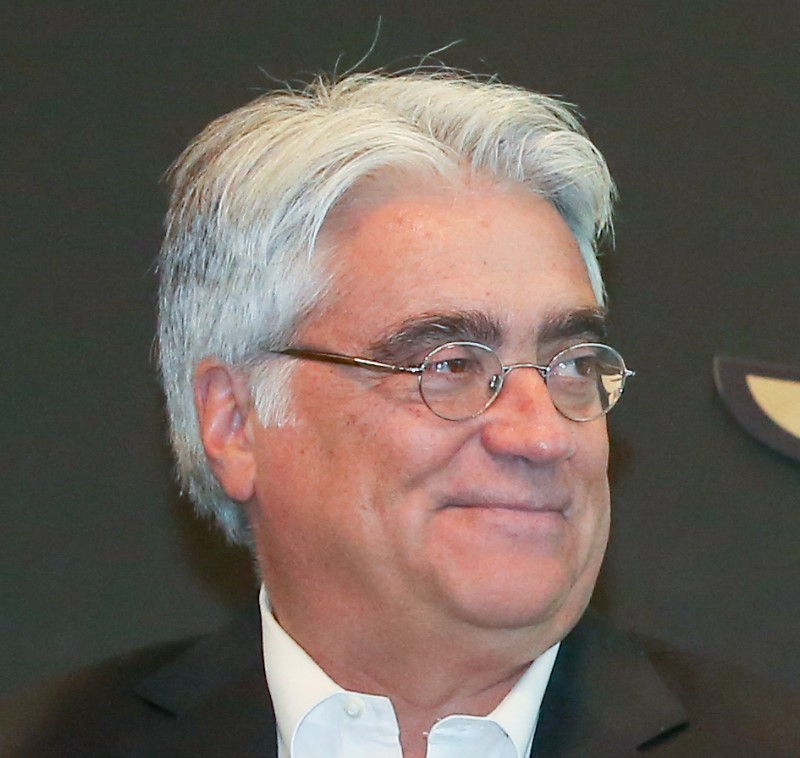IndyCar highlights new champ, gains at gate
 |
| Mark Miles says IndyCar is holding its own and that is somewhat true. Now if it can get it's TV broadcasts off of cable (NBCSN ratings are killing sponsor opportunities) and 100% on network TV the series would take off. |
IndyCar wrapped up a season that saw a decline in television viewership and news that Verizon is unlikely to renew its title sponsorship, yet series CEO Mark Miles touted several positive developments that could bode well for the future writes Adam Stern of Sports Business Daily.
Miles pointed to a new American champion, 26-year-old Team Penske driver Josef Newgarden, which gives the series another element to market against. He also cited attendance upticks at many tracks, including a strong return to the schedule from Gateway Motorsports Park near St. Louis. And Miles said the series saw more international interest, particularly in Europe, as Formula One driver Fernando Alonso drove in the Indianapolis 500.
“It was a terrific year — the championship was compelling yet again, coming down to the finale, and we crowned a great champion with a great future," Miles said.
Still, overall viewership for the Verizon IndyCar Series was down 11 percent this season, from an average of 1.28 million last year over 15 races to 1.14 million over 17 races this year. Viewership had climbed 34 percent from 2014 to 2016. IndyCar averaged 2.31 million viewers on ABC this season, down 8 percent from last year, while it averaged 502,000 viewers on NBCSN (and one race on CNBC), up 3 percent from last year.
Miles noted that last year’s sold-out Indy 500, the 100th running of the race, was shown live in Indianapolis while this year’s wasn’t, which he said accounted for a sizable part of the downtick in viewership.
IndyCar doesn’t typically release gate figures, but Miles said overall attendance for the year was up if excluding the Indy 500, which drew 300,000 people this year compared to 350,000 for the 100th running.
Gateway’s return was widely viewed as a highlight, because the track based near St. Louis saw more than 40,000 fans show up for the venue’s first IndyCar race since 2003. Chris Blair, executive vice president and general manager of the track, said he plans to leverage the sport’s new car debuting next season, and Newgarden, to attract a similar crowd.
“I’m going to be selling that car for sure — that’s going to be the primary focus," Blair said. “The other part of it is I’m hoping we can capitalize on Josef."
Next year’s schedule will be nearly identical to this year’s, save for possibly adding a race in Mexico City, a market Miles is optimistic about thanks to Mexican driver Esteban Gutierrez coming over from F1.
Team executives seemed overall pleased with the season.
Jonathan Gibson, vice president of marketing and communications for Team Penske, which just won its 15th title in the series, said the team saw continued interest in corporate sponsorship from technology companies, pointing to signing IT company DXC Technology as an example. Team Penske hosted more than 200 corporate guests at Sonoma, a race held near California’s Silicon Valley, and its next partner summit will be held in October at Google headquarters in Mountain View, Calif.
“We continue to be bullish on the series both from a commercial perspective but also from a competition standpoint," Gibson said. “We continue to see a high level of interest from our partners."
The series is working through important challenges, though. The two tracks owned by International Speedway Corp. that currently host an IndyCar Series race, Phoenix Raceway and Watkins Glen International, are still dealing with attendance challenges. On the team side, IndyCar front-runner Chip Ganassi Racing announced last week that it would contract from a four-car to a two-car operation, and release a number of employees as a result, as it deals with the loss of longtime partner Target.
And with Miles confirming last week that Verizon is not likely to renew its title sponsorship after 2018, IndyCar’s sales team will have an even busier offseason. IndyCar has several important official categories not filled, including insurance, banking/financial services and quick-service restaurant.
Team Penske’s deal with Verizon is likely to continue despite the company likely dropping the title sponsorship, sources have said in recent months.
IndyCar also is negotiating its next media deals, which opened to the wider market after no renewal was struck during ABC’s and NBC Sports Group’s exclusive negotiating windows. Miles said multiple linear and over-the-top platforms have expressed interest in the property, whose rights expire after next season.
“The way I look at it is we’re holding our own," Miles said. “I can tell you that it’s seen that way in our (media rights) discussions." Adam Stern/SBD
